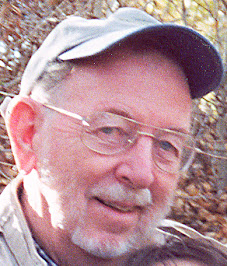This morning Judy and I listened to Krista Tippet's On Being interview with Gordon Hempton (http://www.onbeing.org/program/last-quiet-places/4557) titled "The Last Quiet Places." Hempton has spent his life pursuing "the sounds of silence," traveling the world in search of places not polluted by human-created noise. Highly recommended. Hempton suggests taking a pre-schooler with you into the woods, as far away from town and highway noise as possible, and the child, who has not yet been taught to listen selectively only for what might be important or for what we want to hear , will help you get past your own learned acoustic filters to hear the actual sounds of nature. Also the child will help you get in touch with Being Here Now, understanding that "getting there" is not as important as squatting in the path and absorbing the presence that is here and now.
Relevance to The Slowdown Dirty Truth? Hempton reports that scientists studying the evolutionary engineering of the human ear conclude that the human acoustic sensing equipment is not specifically tuned to the frequency range of human speech, which many had assumed. Instead, the human ear is most sensitive to sounds in the 2.5 to 5.0 kilohertz range – birdsong. Likely explanation: In our evolutionary history, bird songs would have been perhaps the best indicator of what was going on in our habitat. Could be important for survival.
I think "Silent Spring." We lost touch a long time ago.
Coincidentally, I have recently been waking up just before dawn. Lying in bed, I have listened to the mostly silent night, and beginning just before dawn the increasingly compelling sounds of birds greeting the new day.
By the time the chorus is in full sway, most of these bird songs come from our close neighbor's chickens. His wife reports that sitting in their house, he can hear what she cannot. He can tell from their songs what is going on with them, whether all is peaceful or they are having squabbles, or if there is a threat by a predator.
Most of the time during the day I simply don't hear the chickens at all. I just tune them out. My loss?
Listening to the Krista Tippett program also took me back to an experience I had in the 1970s, hiking the Appalachian Trail in north Georgia with a close friend and my two oldest sons. It took me about ten years, but I was finally able to at least come close to describing or evoking the experience in a poem, which was published in the Southern Humanities Review in 1985. It was the last poem I ever published. Something like this:
Camping Among Ferns
At the end of a long day spent crossing broken rock,
talking of its hardness, we make our camp among ferns,
talking . . . talking . . .
And then begin to listen –
the campfire
circling ferns
wind on the mountain
Still, we are surprised by the silence
pouring out of the high darkness
Surprised by our own yawning,
the remembering that comes to us a moment before sleep
and the forgetting
Our exhalation now not quite sound
only air moving over cutting edges
toward ferns flowing up the mountain shoulder.
Sunday, July 7, 2013
Subscribe to:
Post Comments (Atom)


No comments:
Post a Comment